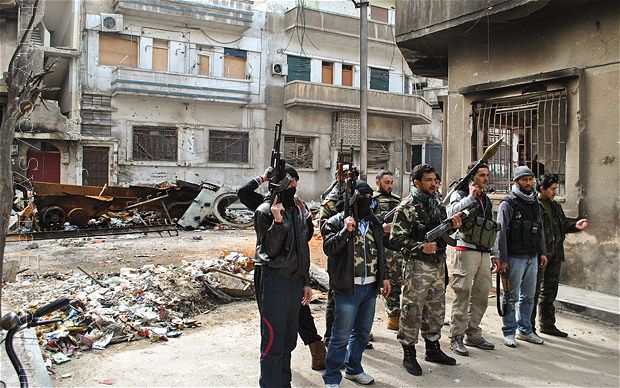
Transitional justice for tough questions
The possibility of negotiations between the al-Assad regime and the Syrian Opposition Coalition has recently risen to prominence. But the prospect of any kind of transition, whether somewhat negotiated or more imposed, raises difficult questions about how Syria will deal with the past. Who will be punished? Who will not? How can victims of past abuses seek justice? For many reasons, a deliberate strategy of inclusive transitional justice is the best way to tackle these tough questions.
One potentially contentious issue is the prosecution of defeated enemy combatants. As the formation of a transitional government evolves, what does that mean for regime foot soldiers? Many Syrians would no doubt like to see those soldiers punished, and the excuse of “just following orders” was long ago rejected as a legitimate cover for committing crimes during war. But expansive punishments could be an unwieldy undertaking likely to exacerbate divisiveness in a time when Syria will need unity. Transitional justice processes in the past have been designed to balance these realities according to the will of the affected societies. Where particular crimes committed by soldiers are concerned, distinguishing between the highest levels of leadership and lower ranks has been one strategy to facilitate justice while easing transition. This is just one approach, however, and while the specific mechanism is important, it will be the participatory and transparent nature of proceedings that help lend legitimacy to the transition.
Confronting crimes committed by some opposition parties will be another difficult task during transition. While victims may demand justice for rebel crimes, prosecuting opposition members could be unpopular. This might be especially true for rebels with strong political backing or broad societal support. Furthermore, the mechanism of prosecution will be important to determining its impartiality. In a process that could heighten factionalism and fall prey to competing interests, an independent judicial body or commission offers one way to avoid perceptions of bias and ensure that evidence, not politics, drives and determines prosecutorial decisions. Notably, there are already efforts underway to educate opposition groups on acceptable practices and minimize violations.
Reparations could be another salient issue. A new government can signal its commitment to justice by recognizing past crimes and providing payments to victims and their families. Collective reparations for communities in Syria might be a useful option as well. Notably, such mechanisms have been implemented in the Arab world before. In 2004, King Hassan VI of Morocco established the Equity and Reconciliation Commission to address the government’s responsibility for abuses committed from 1956 to 1999 and to rule on reparation requests. The Commission resulted in $85 million being paid to 16,000 people and included communal reparation components. While the Commission was not without serious criticisms, its presence suggests one plausible path forward for Syria to come to terms with past governmental abuses.
Questions of treating enemy combatants, opposition crimes, and reparations are just some of the issues Syria will soon face. But they won’t settle themselves and they require a deliberate strategy. Whatever forces coalesce to form the next government, they should work to bring Syrians from across the political, ethnic, and class spectra to the table as stakeholders who all have an interest in a peaceful and just transition. Steps should be taken to establish and support institutions that both enjoy legitimacy and can effectively implement the necessary stages of justice processes. Prioritizing these meaningful steps will serve the next government and the Syrian people well. Strategies to settle important questions will be most effective when consensus, not coercion, guides the process of healing and rebuilding.
Signup to receive the SJAC’s Weekly Updates here.
Follow us on Twitter at SJAC_info.